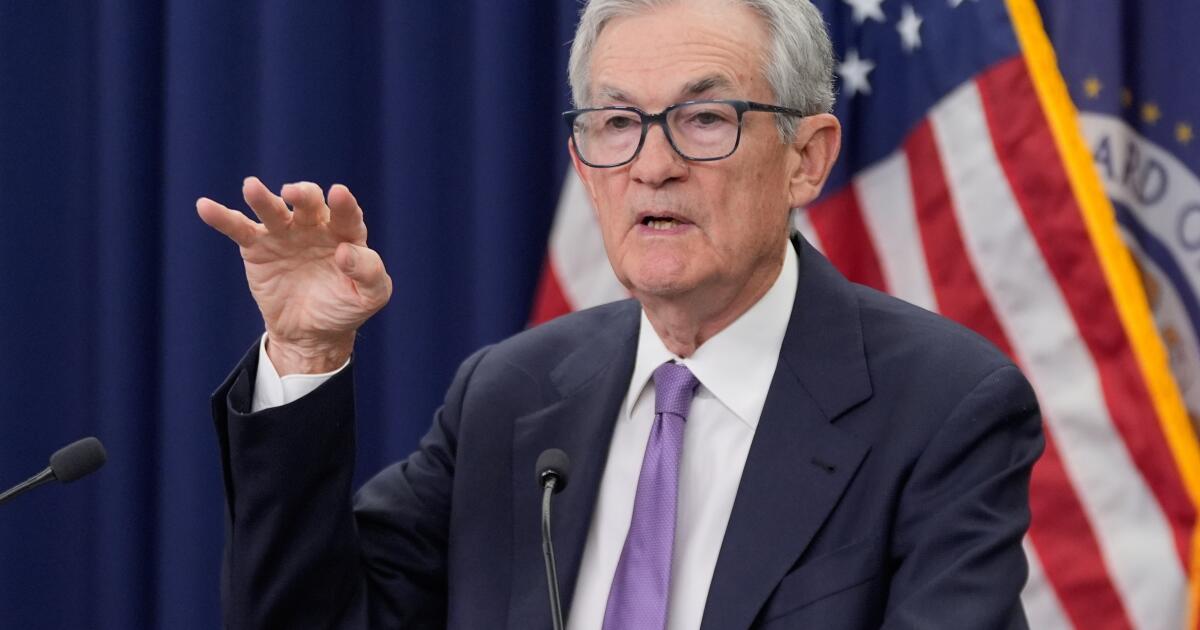Stocks on Wall Street experienced fluctuations on Wednesday following a decision by the Federal Reserve to cut its main interest rate in an effort to support the ailing job market. Despite the rate cut, Fed Chair Jerome Powell indicated that future reductions are not guaranteed, leading to a mixed response in the markets. The S&P 500 finished nearly unchanged, declining by less than 0.1%. The Dow Jones Industrial Average fell 73 points, or 0.2%, while the Nasdaq composite rose 0.5%.
The market had initially been poised for modest gains after the Fed’s second rate cut of the year, but sentiment shifted when Powell stated that a further cut in December is “far from a foregone conclusion.” He emphasized that the committee members have “strongly differing views about how to proceed,” which unsettled traders who had anticipated a more aggressive easing policy.
The rate decision was not as definitive as some had expected. One member of the Fed’s committee, Jeffrey Schmid, dissented, advocating for keeping the federal funds rate steady rather than lowering it. This dissent underscored the ongoing debate within the Fed about the best course of action to support the economy.
Meanwhile, a wave of earnings reports from major U.S. companies is influencing market movements. The technology sector continues to drive growth, particularly companies involved in artificial intelligence. Teradyne saw a notable increase of 20.5%, the largest gain in the S&P 500, after reporting stronger-than-expected profits. CEO Greg Smith attributed this success to robust demand for AI-related applications.
In contrast, Nvidia rose by 3%, becoming the first company to reach a valuation of $5 trillion on Wall Street, just three months after surpassing the $4 trillion mark. Even industrial giant Caterpillar enjoyed an 11.6% boost after exceeding profit expectations, largely due to its equipment used in AI-powered data centers.
On the downside, Fiserv suffered a staggering 44% drop, marking its worst day since the stock began trading in 1986. The payments and financial technology firm reported disappointing profits and revised its annual forecast downward, prompting a shakeup in its leadership team. Similarly, Mondelez International declined by 3.9% despite reporting better-than-expected results, as the company grapples with rising cocoa costs and challenging market conditions.
Overall, the S&P 500 edged down to 6,890.59 points, while the Dow Jones closed at 47,632.00, and the Nasdaq finished at 23,958.47.
Internationally, stock markets displayed mixed results. European indexes followed a stronger finish in Asia, where Tokyo’s Nikkei 225 surged 2.2% to a new record. South Korea’s Kospi also climbed 1.8% to an all-time high, following diplomatic meetings between U.S. President Donald Trump and South Korean leadership. In Shanghai, stocks gained 0.7% ahead of another high-profile meeting between Trump and China’s President Xi Jinping as the two nations continue to navigate an escalating trade conflict.
In the bond market, yields on the 10-year Treasury rose to 4.07% from 3.99%, reflecting decreased expectations for further rate cuts in December. The Fed has indicated that inflation remains a concern, and any acceleration may require a halt to further rate reductions.
The current U.S. government shutdown complicates the Fed’s decision-making process, delaying crucial economic updates that typically guide policy. As Wall Street navigates these uncertainties, the focus remains on corporate earnings and broader economic signals.







